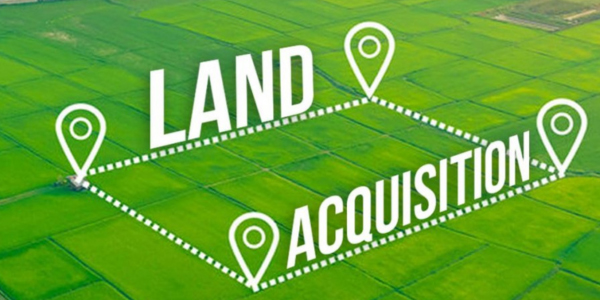Land Acquisition: Bridging Dreams to Reality
Introduction
Government has a duty towards Civil work for public welfare. For this most of the time, they have to deal in construction, for which they need land. In addition, it is possible that at times the land they need is private property. In such a case, the government’s power to take that land overpowers the individuals’ right over that property. The government can acquire private land for the purpose of public work. This is called land acquisition. It is usually done for the purpose of public work building infrastructure, urbanisation, development and industrialization.
Strategies for Successful Land Acquisition:
- Comprehensive Planning: Thorough planning is essential to identify suitable land parcels and align acquisition goals with broader development objectives. This includes assessing the need for infrastructure, estimating future growth, and minimizing potential negative impacts.
- Community Engagement: Building trust and engaging with local communities are critical aspects of successful land acquisition. Meaningful consultations, open dialogue, and addressing concerns can help reduce conflicts and ensure a smoother process.
- Transparent Valuation: Employing fair and transparent valuation methods is crucial to build trust with landowners. Collaborating with experts and using established valuation techniques can lead to more accurate compensation estimates.
- Environmental Stewardship: Implementing sustainable land use practices and conducting thorough environmental impact assessments can mitigate negative consequences. Adopting eco-friendly designs and incorporating green spaces into projects can help preserve the environment.
What is the purpose of Land Acquisition?
The land acquisition activities are carried out in the following cases:
- To fulfill state or national security requirements set by naval, military, air force or other armed forces.
- To develop public infrastructure such as highways or metro lines. This acquisition cannot happen in case of private hospitals, private educational institution and private hotels.
- For any project involving agriculture or allied industries, such as dairy, fisheries or meat processing, owned by the government or by farmer’s cooperatives.
- To carry out manufacturing zones, establish industrial corridors or other projects as per the National Manufacturing Policy.
- To carry out water harvesting projects for planned development or improvement of village sites.
- To establish a government-aided educational and research institution.
- To work on development of housing projects for the poor in urban and rural areas.
- To develop residential projects for the poor or landless, or for people affected by natural calamities
Land acquisition is a complex process that often involves numerous challenges, ranging from legal and social issues to environmental and ethical concerns. Here are some of the key challenges associated with land acquisition:
- Equitable Compensation: Determining fair compensation for landowners is a critical challenge. The value of land is subjective and influenced by various factors, such as location, potential use, and market trends. Ensuring that landowners receive just compensation is essential for maintaining social harmony and preventing feelings of exploitation.
- Informed Consent: Obtaining informed consent from landowners is essential, especially when projects affect local communities or indigenous populations. Proper communication and transparency about the project’s benefits, potential drawbacks, and compensation packages are crucial to building trust and minimizing resistance.
- Resettlement and Rehabilitation: In cases where land acquisition leads to displacement, providing adequate resettlement and rehabilitation measures becomes vital. Displaced families should receive support to regain their livelihoods and access to essential services.
- Environmental and Social Impact: Large-scale projects can have far-reaching environmental and social implications. Conducting thorough environmental impact assessments and addressing potential negative effects are essential for sustainable development.
Conclusion
Land acquisition remains a critical tool for progress, but its implementation requires a delicate balance between development goals and respecting property rights. By prioritizing equitable compensation, informed consent, and sustainable practices, societies can navigate the complexities of land acquisition, ensuring that progress is achieved without compromising the rights and well-being of individuals and communities.



